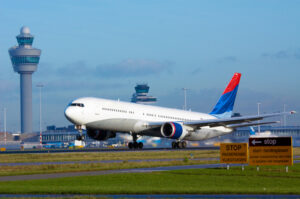
The airline industry is a vital component of the global economy and plays a crucial role in the transportation of people and goods. As a result, the industry is closely regulated by various national and international organizations to ensure the safety and comfort of passengers, as well as to ensure the financial stability of airlines. This regulation results in a vast array of public records that provide valuable information on the industry, including its performance, financial stability, and safety.
One of the most important public records in the airline industry is the Department of Transportation’s Bureau of Transportation Statistics (BTS). The BTS collects and publishes data on the number of passengers transported by each airline, as well as information on flight cancellations and delays. This information is crucial for passengers who are considering traveling with a particular airline, as it provides a clear picture of the airline’s performance and reliability.
Another important public record is the Federal Aviation Administration’s (FAA) aircraft accident database. This database contains information on all aircraft accidents and incidents in the United States, including the cause of the accident and the number of fatalities and injuries. This information is crucial for airlines to identify potential safety concerns and for regulators to track and address any trends in the industry. The FAA also publishes regular safety reports, including the Air Traffic Safety Action Program (ATSAP) Report, which provides detailed information on the FAA’s ongoing efforts to improve aviation safety.
Financial stability is another key aspect of the airline industry that is monitored through public records. The Securities and Exchange Commission (SEC) requires airlines to file annual and quarterly financial statements, which provide information on the airline’s revenue, expenses, and profitability. This information is crucial for investors and analysts who are considering investing in the airline industry, as it provides an insight into the financial health of the airline and its ability to generate profits.
Another important public record for the airline industry is the FAA’s Operational Safety Review (OSR) report. This report is conducted on an annual basis and provides information on the operational safety of the airline, including its flight operations, maintenance procedures, and safety culture. The report also provides recommendations for improving the operational safety of the airline. This information is valuable for airlines to improve their operational safety, as well as for regulators to ensure that airlines are operating in a safe and efficient manner.
In addition to the above records, airlines are also required to publish their customer satisfaction and complaints data. The Department of Transportation’s Air Travel Consumer Report provides information on the number of customer complaints filed against each airline, as well as information on the airline’s on-time performance, lost or damaged baggage, and denied boarding rates. This information is important for passengers who are considering traveling with a particular airline, as it provides a clear picture of the airline’s customer service and satisfaction.
Finally, environmental impact is an increasingly important consideration for the airline industry, and this is reflected in the public records available. The Federal Aviation Administration’s Carbon Offsetting and Reduction Scheme for International Aviation (CORSIA) provides information on the carbon emissions of the airline industry, and airlines are required to publish their environmental policies and initiatives. This information is valuable for passengers who are concerned about the environmental impact of air travel, as well as for regulators who are working to reduce the carbon emissions of the airline industry.
The airline industry is a complex and heavily regulated industry that generates a vast array of public records. These records provide valuable information on the performance, financial stability, safety, customer satisfaction, and environmental impact of the airline industry. This information is crucial for passengers, investors, and regulators who are considering the future of the airline industry and is a key component of ensuring the continued growth and development of the industry.
